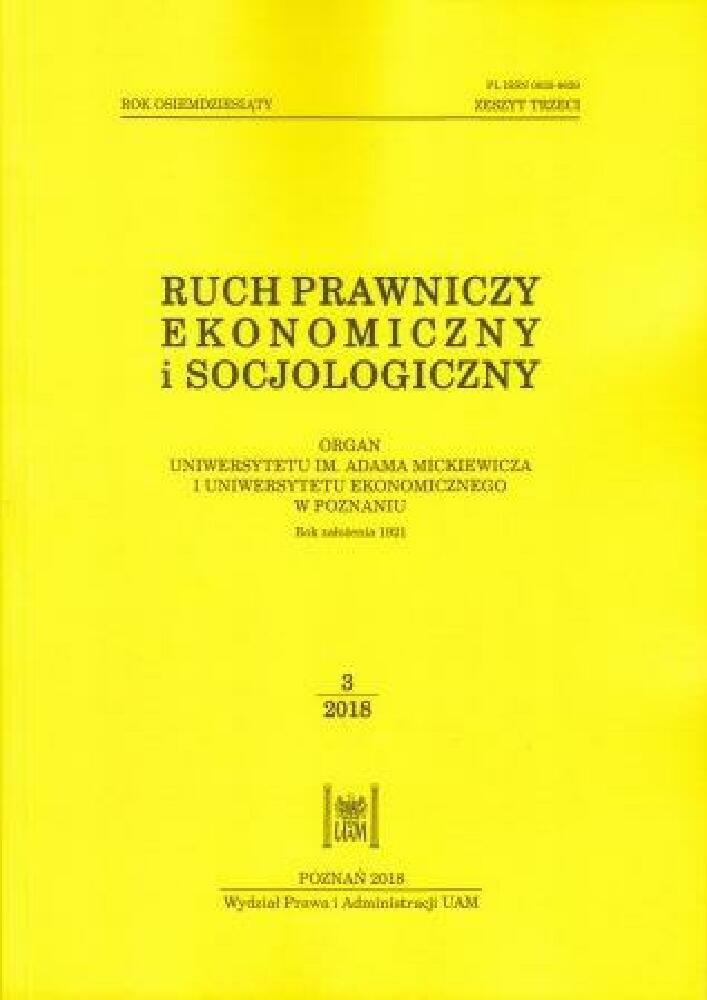Abstract
The article analyses the relation between the ageing of society and technical progress, which seems to be a particularly important subject in the view of the inevitability of changes in the demographic structure and the latest analyses of the impact of this phenomenon on labour productivity. On the basis of the results of empirical studies, forecasts of the GDP growth rate forEurope have been revised, taking into account this correlation. It appears that the existence of dependencies lowers this indicator significantly. Moreover, the analysis of the time series of macroeconomic aggregates has shown that a change in the demographic structure may have a severe impact not only on the long-term trend but also on the course of economic cycles. Furthermore, the article extends the classic model of overlapping generations in such a way as to reflect the impact of population ageing on technical progress. It has been shown that the impact of the modification is far greater than the impact of merely taking into account the slowdown resulting from demographic trends.
References
Acemoglu, D. (2009), Introduction to Modern Economic Growth, New Jersey.
Adler, G., Duval, R., Furceri, D., Celik, S.K., Koloskova, K., Poplawski-Ribeiro, M. (2017), Gone with the Headwinds: Global Productivity, IMF Staff Discussion Note.
Aiyar, S., Ebeke, Ch., Shao, X. (2016), The Impact of Workforce Aging on European Productivity, IMF Working Paper.
Aksoy, Y., Grasl, T., Smith, R. (2015), Demographic Structure and Macroeconomic Trends, CESifo Working Paper Series No. 5872.
Andrews, D., Criscuolo, C., Gal, P. (2015), Frontier Firms, Technology Diffusion and Public Policy: Micro Evidence from OECD Countries, OECD Productivity Working Papers No. 2.
Borsch-Supan, A., Weiss, M. (2016), Productivity and age: evidence from work teams at the assembly line, The Journal of the Economics of Ageing 7: 30–42.
Burda, M., Wyplosz, Ch. (2013), Makroekonomia. Podręcznik europejski, tłum. B. Czarny, Warszawa.
Chang, H. (2013), 23 rzeczy, których nie mówią ci o kapitalizmie, tłum. B. Szelewa, Warszawa.
Decker, R., Haltiwanger, J., Jarmin, R., Miranda, J. (2016), Where Has All the Skewness Gone? The Decline in High-Growth Firms in the United States, NBER Working Paper.
Disney, R. (1996), Can We Afford to Grow Older? A Perspective on the Economics of Aging, Cambridge.
Dixon, S. (2003), Implications of population ageing for the labour market, Labour Market Trends 111(2): 67–76.
Fehr, H., Kindermann, F. (2018), Introduction to Computational Economics Using Fortran, Oxford.
Feyrer, J. (2008), Aggregate evidence on the link between age structure and productivity, Population and Development Review 44: 78–99.
Garcia-Macia, D. (2015), The Financing of Ideas and the Great Deviation, IMF Working Paper.
Gordon, R.J. (2017), The Rise and Fall of American Growth. The U.S.: Standard of Living since the Civil War, New Jersey.
Gordon, R. (2018), TED Talk: Robert Gordon – The Death of Innovation, the End of Growth, https://www.ted.com/talks/robert_gordon_the_death_of_innovation_the_end_of_growth [dostęp: 20.02.2018].
Jaimovich, N., Siu, H. (2009), The young, the old, and the restless: demographics and business cycle volatility, American Economic Review 99(3): 804–826.
Landreth, H., Colander, D.C. (2008), Historia myśli ekonomicznej, tłum. A. Szeworski, Warszawa.
Maddison, A., Maddison Historical Statistics Database, http://www.ggdc.net/maddison/oriindex.htm, [dostęp: 20.02.2018].
McGowan, A., Andrews, D. (2017), The Walking Dead? Zombie Firms and Productivity Performance in OECD Countries, OECD Economics Department Working Papers.
Mokyr, J. (2018), EconTalk Episode with Joel Mokyr: Joel Mokyr on Growth, Innovation and Stagnation, http://www.econtalk.org/archives/2013/11/joel_mokyr_on_g.html [dostęp: 15.02.2018].
Mokyr, J. (2016), The Culture of Growth. The Origins of the Modern Economy, New Jersey.
Piketty, T., Piketty’s Capital in the 21st century Database, http://piketty.pse.ens.fr/en/capital21c2 [dostęp: 20.02.2018].
Ridder, M. (2017), Investment in Productivity and the Long-Run Effect on Financial Crises on Output, CESifo Working Paper Series.
Romer, D. (2000), Makroekonomia dla zaawansowanych, tłum. A. Malawski, Warszawa.
Siliverstovs, B., Kholodilin, K., Thiessen, U. (2011), Does aging influence structural change? Evidence form panel data, Economic System 35(2): 244–260.
Veen, S. (2006), Demographischer Wandel, alternde Belegschaften und Betriebsproduktivität, München.
License
Copyright (c) 2018 WPiA UAM

This work is licensed under a Creative Commons Attribution-NonCommercial-NoDerivatives 4.0 International License.





